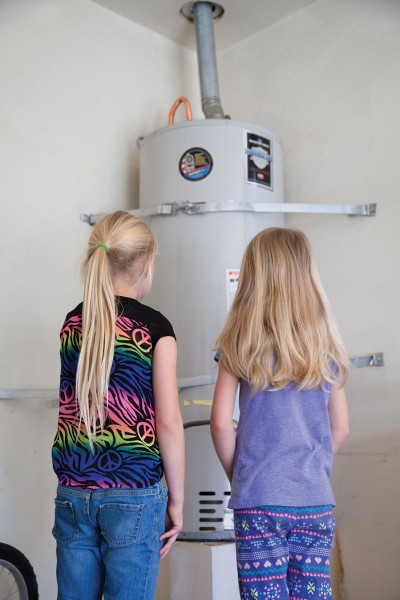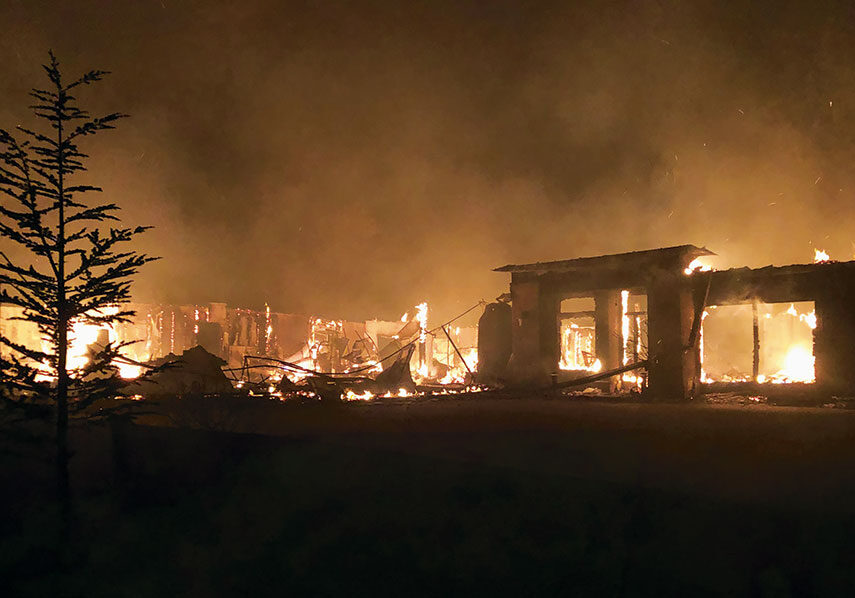 It’s one of the luxuries of modern life – turn the tap and hot water flows out, ready for baths, showers, laundry and dishes. It’s not something you likely think about often … unless your water heater starts giving you trouble.
It’s one of the luxuries of modern life – turn the tap and hot water flows out, ready for baths, showers, laundry and dishes. It’s not something you likely think about often … unless your water heater starts giving you trouble.
The life expectancy of a modern water heater is about 10 years, says Brandon Daugherty, owner of High Mountain Plumbing in Mount Shasta. That being said, Daugherty sometimes sees “dinosaur” water heaters from the 1950s that are still in great condition and working just fine.
It’s important to know the age of your water heater. Yours should have a label that lists its model and serial number, manufacturer, warranty, gallon capacity, and other important information. If you know the water heater’s age, you’ll know how closely to watch it for potential problems.
There are some telltale signs that your water heater is on its last leg. The most obvious is when it’s leaking. This could mean a broken supply line, which a professional can fix, or something more serious. If you have water around your water heater, take immediate action to avoid damage to your home because things could escalate quickly.
Another sign that your water heater is on the fritz: rusty water, or water with a strange smell or taste. An old water heater may be rusting away on the inside. Flushing your water heater once or twice a year can prevent buildup of iron, rust, and other minerals. To do it, hook up a hose to the valve near the bottom of your tank, open it, and allow the dirty water to flow through. This simple maintenance may prolong the life of your water heater.
Banging or rumbling noises can also point to a problem, though it is normal to hear some sounds from your water heater. “You can hear the element heating the water if you listen closely, but you shouldn’t hear any pops or bangs,” says Daugherty. If your water heater sounds like a rock band is practicing in your garage, don’t panic: it could just mean a pipe isn’t secured.
For families with children, Daugherty suggests running water heaters at 120 to 125 degrees Fahrenheit. You can always check the temperature of your hot water with a standard thermometer at a household tap, he says.
Some other considerations: make sure there’s a pan underneath your water heater to prevent any damage to your home in case of a leak. Another important thing is to make sure your tank is secured with earthquake straps. These ensure your tank stays upright in case of an emergency.
If you’re concerned about your water heater, it is a good idea to contact a plumber or other professional who services water heaters.
Posted in: Community
Comment Policy: All viewpoints are welcome, but comments should remain relevant. Personal attacks, profanity, and aggressive behavior are not allowed. No spam, advertising, or promoting of products/services. Please, only use your real name and limit the amount of links submitted in your comment.
Comments
Leave a Reply
You Might Also Like...

Fire: Being Prepared Saves Lives
Plan Ahead To Protect Your Family Should Disaster Strike When it comes to home disasters, fires are the most common and can be the most deadly for young children. Preparedness […]

Siskiyou County Search & Rescue – Volunteers Saving Lives In The North State
A Klamath Falls airman, out for a climb with a couple of friends, was 12,500 feet up Mount Shasta when he fell and broke his ankle. “His two buddies were […]

Ideas for Frugality
Ideas for Frugality Living frugally is a choice many families make to help them set goals and dream dreams that thriftiness will make financially accessible. This is a lifestyle that […]
Real Fruit Popsicles
The recipe for these delicious and dietitian-approved frozen treats was adapted from the blog “All Things Green” by Maria Baath. I took her advice to make them a little sweeter […]



Kendall Ryder says
I think it is a good idea to know the water heater’s age and looking for problems at it gets older. This can help you better recognizing a problem and knowing that one can creep up at any time. And, once it hits the ten year mark, you can see about switching it out. Even if there is no problem with it at that age, it is still probably best to get a new one so potential problems don’t arise.